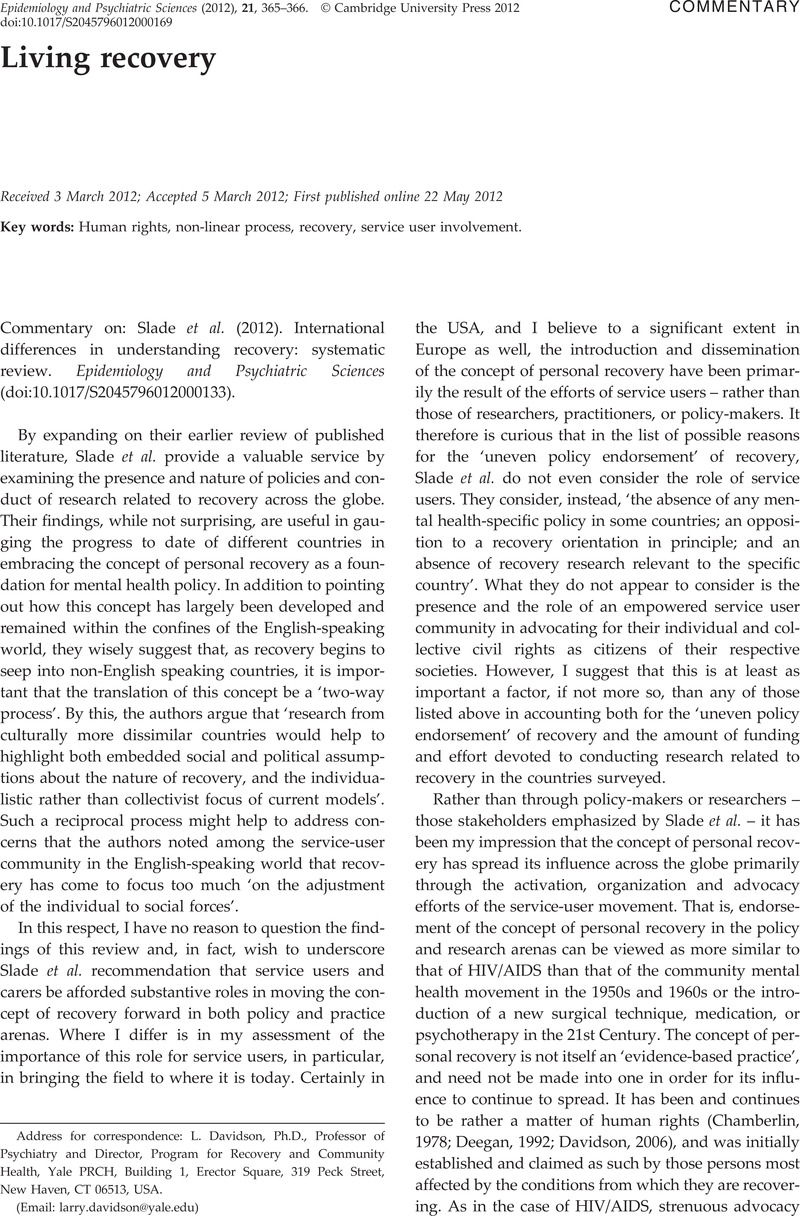Crossref Citations
This article has been cited by the following publications. This list is generated based on data provided by Crossref.
Fornells-Ambrojo, M.
Craig, T.
and
Garety, P.
2014.
Occupational functioning in early non-affective psychosis: the role of attributional biases, symptoms and executive functioning.
Epidemiology and Psychiatric Sciences,
Vol. 23,
Issue. 1,
p.
71.
Fitzpatrick, Scott J.
2015.
Scientism as a Social Response to the Problem of Suicide.
Journal of Bioethical Inquiry,
Vol. 12,
Issue. 4,
p.
613.
Dawson, Suzanne
Lawn, Sharon
Simpson, Alan
and
Muir-Cochrane, Eimear
2016.
Care planning for consumers on community treatment orders: an integrative literature review.
BMC Psychiatry,
Vol. 16,
Issue. 1,
Cleary, Michelle
Lees, David
Molloy, Luke
Escott, Phil
and
Sayers, Jan
2017.
Recovery-oriented Care and Leadership in Mental Health Nursing.
Issues in Mental Health Nursing,
Vol. 38,
Issue. 5,
p.
458.
Fitzpatrick, Scott J.
and
River, Jo
2018.
Beyond the Medical Model.
International Journal of Health Services,
Vol. 48,
Issue. 1,
p.
189.



